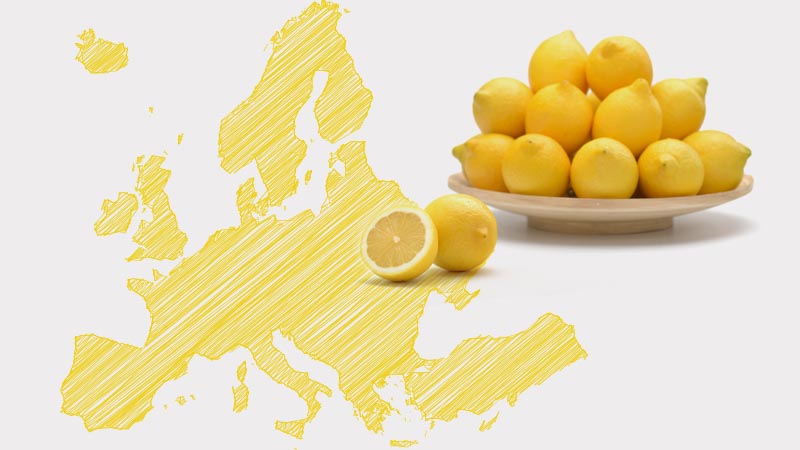
THE EUROPEAN MODEL BEHIND OUR LEMONS
Before they reach your table, our lemons are produced according to the world’s most exacting standards for food safety, traceability, environmental protection, and sustainability:
the European Production Model standards.
All of this makes European lemons unique in the world because of their origin, freshness, sustainability, and quality. You can receive them anywhere in Europe in just 48 hours, straight from the grove, and they’re so fresh!
OUR LEMON PRODUCTION
Global lemon production has been on the rise for the past decade. The global average is 5,700,000 t (2010-18).
Spanish-grown lemons represent 60% of European production at almost 1,000,000 t, adding up fresh and processed lemon production.
A Spanish fruit is number one in the world? HOORAY!
FRESH
This is the main way lemons are used, with average global production of 3,600,000 t. Spain is the number one seller of fresh lemons, averaging 740,000 t.

PROCESSED
This production is carried out for industry, which in recent years has diversified its use of lemons:
· Fresh juices and juice concentrates
· Extraction of essential oils, pulp, peel, pectin and/or flavonoid
· Manufacture of feed, fragrances, household products
· Obtaining of natural citric acid for the production of fresh preserves
Spain is the world’s second-largest producer of processed lemons, growing 236,375 t.

HOW OUR LEMONS ARE CONSUMED
Lemons are all the rage in Spain, in Europe, and around the world!
Below are some of the most important numbers to illustrate lemon consumption in recent years.
GLOBAL LEMON CONSUMPTION
In 2018, global consumption of fresh lemons reached 3,800,000 t, a 17% increase from 2010 and equivalent to 3.4 kg per person.

EUROPEAN LEMON CONSUMPTION
In 2016, 1,500,000 t of fresh lemons were consumed in Europe, an increase of 22% from 2010 and equivalent to 2.66 kg per person.

SPANISH LEMON CONSUMPTION
97% of Spaniards report that they consume lemons between two and four times a week, which is equivalent to consumption of 185,000 t (2018).

Privacy Policy
Legal Notice
Cookies Policy

